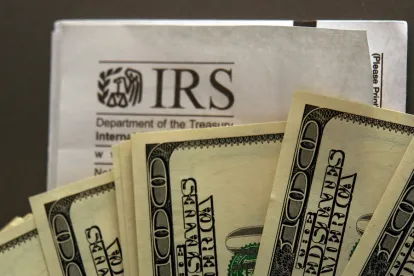Under an Executive Order issued by President Trump on Aug. 8, 2020, employers may temporarily defer withholding the employee’s share of Social Security taxes for certain employees for the remainder of 2020. The employee’s share of Social Security taxes is normally withheld at a rate of 6.2 percent on the first $137,700 of wages. The aim of this Executive Order is to provide relief to taxpayers due to the economic impacts of the 2019 novel coronavirus (COVID-19) pandemic. While President Trump has indicated that he would like to seek a forgiveness of the deferred taxes if he wins reelection, the current regime is merely a deferral of the taxes.
The initial Executive Order left many questions unanswered, and the Internal Revenue Service (IRS) has issued additional guidance on the deferral regime in recent weeks, including IRS Notice 2020-65. Under this guidance, employers may defer withholding an eligible employee’s share of Social Security taxes for wages paid between Sept. 1, 2020, and Dec. 31, 2020.
An employee is eligible if he or she earns less than $4,000 per bi-weekly pay period or an equivalent amount for pay periods of different lengths. The cap is viewed on a pay period-by-pay period basis, so an employee may be eligible for deferral in one pay period but not another if his or her pay fluctuates. An employee who is paid more than the cap amount in any pay period is completely ineligible for deferral for that pay period, even on wages below the cap amount. Initially it was unclear whether this deferral regime was mandatory or optional, but the IRS indicated on a monthly payroll industry teleconference that employers are not required to implement the deferral regime, even if requested by an employee.
The Executive Order did not specify whether the employee or employer would be liable for repayment of the deferred taxes. However, IRS Notice 2020-65 provides that the employer is responsible for withholding and remitting the deferred taxes from the employee’s compensation, on a ratable basis, between Jan. 1, 2021, through April 30, 2021. Essentially, employees will be subject to double the normal Social Security withholding during this repayment period if the employee fully deferred all his or her Social Security taxes during the Sept. 1, 2020, through Dec. 31, 2020 deferral period.
Concerns have been raised about employees who terminate employment before the deferred taxes are fully withheld and repaid, since the employer remains liable for paying the deferred taxes. The guidance provides that employers can plan to otherwise collect the unpaid deferred taxes from the employee in this scenario. If an employer implements this deferral regime, the employer should consider implementing a collection right for employees who terminate before the deferred taxes are fully repaid. If any collection right is implemented, care should be exercised to comply with all applicable wage and hour laws to allow the employer to lawfully withhold and collect the balance of deferred taxes.
If the deferred taxes are not fully repaid by April 30, 2021, then interest and penalties will begin to accrue on the unpaid deferred taxes beginning on May 1, 2020, and the employer will be liable for these interest and penalties.



 />i
/>i
